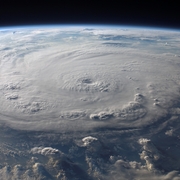The 2017 Atlantic hurricane season inflicted heavy casualties and loss of life. At the same time, events in Texas, Florida, and Puerto Rico highlighted opportunities for improving U.S. natural hazards policy. In short, these involve building community-level resilience nationally and correspondingly reducing reliance on forecast-based emergency evacuations. Progress is needed in several respects: a more integrated approach toward economic development and hazard risk management; more effective and strategic public-private collaboration in risk management; a focus on reducing risk versus mere redistribution of risk; rigorous learning from experience versus rebuilding as before; and shouldering responsibility versus relying on federal bailouts. Ultimately, resilience in the face of hazards cannot be accomplished by a few. Instead it will require embrace as a shared public value.
A Reset for U.S. Natural Hazards Policy? Lessons from Harvey, Irma, and Maria
